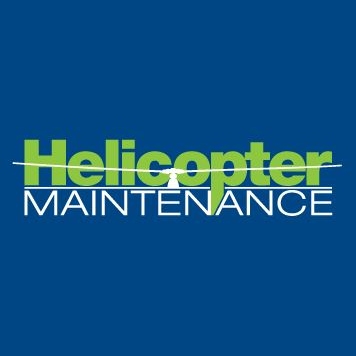
GLOBAL ECONOMIC AND THE HELICOPTER MAINTENANCE PROFESSIONAL

It’s that time of year when the presidential election and all the hype that went with it are finally over. Good, bad or indifferent, whatever your views on the subject are, it is time to move on. Politics by nature is only looked at in a favorable light by politicians. Time will tell how we are doing. Of more pressing concern is how all the financial decisions being made here in the U.S. and around the globe by governments and businesses affect us, the helicopter maintenance professionals. It probably is not something we think about very much, if at all, but we should. The days of financial isolationism are long gone, and it is easy to understand why if someone in the Far East sneezes, we stand a good chance of catching a cold.
The aviation industry in general and the helicopter marketplace specifically are not immune to the ups and downs of the financial world. We work on helicopters that are not only manufactured in the U.S., but in Canada, France, England, Germany and Italy. (There are probably some countries I have missed, but you get my point.) The individual parts or entire assemblies/sub-assemblies of some helicopters are located in companies located in a score of other countries. Outsourcing seems to be the name of the game today. How those countries’ economies are performing has a pronounced effect on our economy and business climate here.
If you keep up on aviation news in general, you know that Boeing learned the hard way that spreading out manufacturing jobs to different companies in different countries did not work out as planned. The global economy did not help when in August of this year, Australian carrier Qantas Airways Ltd. canceled an order for 35 of the larger 787-9 aircraft, citing rising fuel costs and increased operating expenses as their reasons.
Here is a classic example of a problem in Australia affecting sales, jobs and revenue for a company manufacturing aircraft in the U.S. Are you getting the sniffles yet? On a recent trip to Europe, I perceived the notion there that denial is a river in Egypt. We know better, but it will still hurt our economy down the road. The European Union currency, the Euro, is overvalued and the European Central Bank (ECB) is lending Euros by the bucketful to Greece, Spain, Italy and other countries, and they will never see a Euro in return. Those countries’ financial situations is beyond saving. Of course, I do not have a degree in finance, so what do I know? I do have common sense, but that is a different matter that I talked about it in an earlier editorial (see the October/November issue of HeliMx).
A good analogy would be that your house has sprung a water pipe leak and the water is up to the height of your kitchen table and rising fast. You have two choices: fix the leak or raise the height of your ceiling. It seems that politicians the world over do not have any phone numbers for plumbers, only home construction crews that continually want to raise the height of their ceilings.
Eventually sales of new helicopters will taper off as the economy slows. With the U.S. military pulling out of Afghanistan, the order for new military helicopters will also decline. Operating helicopters is not for those who do not have deep pockets. When I teach an avionics class, I usually ask my students what makes an aircraft fly. I get the usual answers of lift, thrust, etc. The real answer though is money. Without money, the aircraft is grounded. Where does the money come from? A customer is the only correct answer. Without customers, regardless of what part of helicopter operations your company is involved in, you are out of a job.
So what can we do as helicopter maintenance professionals to help retain and get new customers, even in tough economic times?
1. Treat every customer like they are gold.
2. Never argue with a customer. Let upper management do that.
3. When talking with a customer, never talk to them like they are an idiot. Talk withthem, not tothem.
4. Answer their questions to the best of your ability in terms they understand.
5. Never say anything derogatory about a customer anywhere, or place derogatory statements on social media such as Facebook or Twitter. You never know who is looking or can overhear what you are saying.
6. Treat everyone with the same respect and consideration you would want for yourself.
Think of the person or company that owns the helicopter entrusted to your care in this way. By having a helicopter or a fleet of helicopters, they have kept people employed at many different manufacturing locations. They require pilots to fly the helicopter and maintenance to be performed, which employs more people. The helicopter needs fuel and parts and that means those items are purchased, delivered and stored, which employs yet more people. The helicopter(s) you maintain do a lot to help keep our economy moving forward. You are an important link in that chain. Whether you realize it or not, you too are an important part of the global economic picture.
 R. Fred Polak | Editor
R. Fred Polak | Editor
